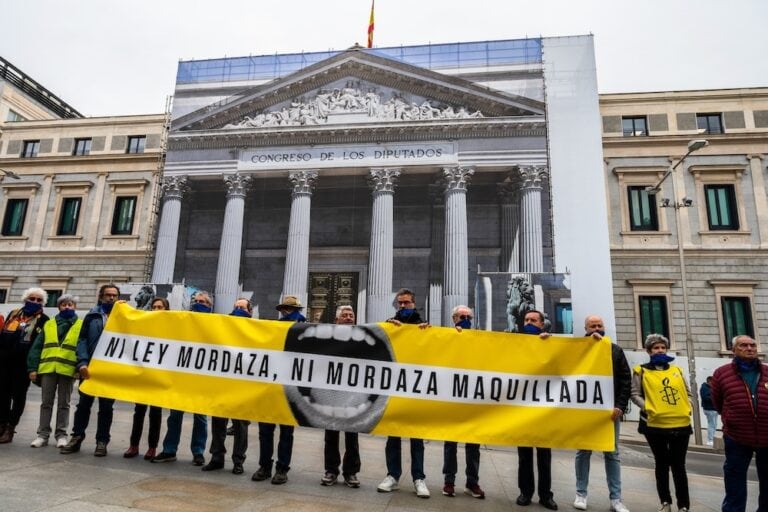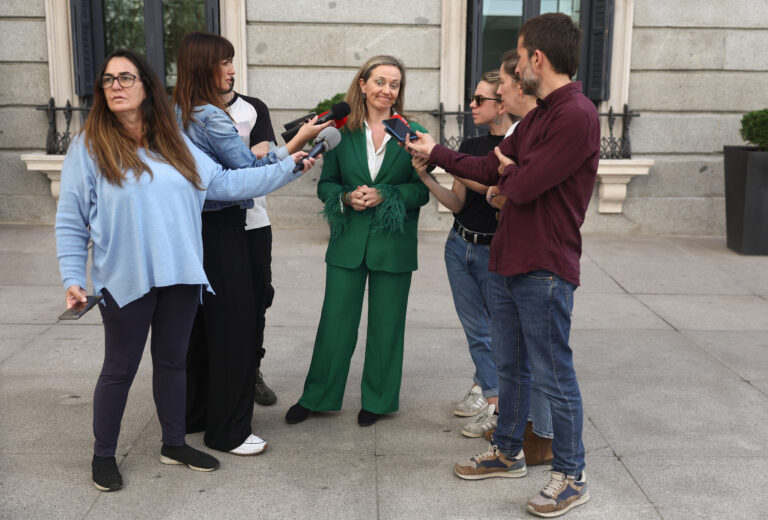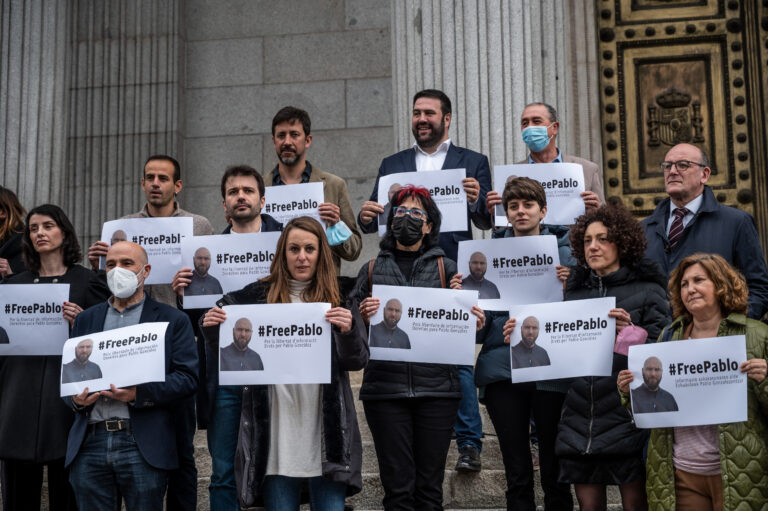(RSF/IFEX) – On 20 May, RSF urged the Spanish authorities not to prosecute the Basque public radio and television network Euskal Telebista (ETB) for broadcasting a videotape of three presumed members of the Basque terrorist organisation ETA reading a statement. ETB Director General Andoni Ortuzar was summoned for questioning on 21 May by the State […]
(RSF/IFEX) – On 20 May, RSF urged the Spanish authorities not to prosecute the Basque public radio and television network Euskal Telebista (ETB) for broadcasting a videotape of three presumed members of the Basque terrorist organisation ETA reading a statement. ETB Director General Andoni Ortuzar was summoned for questioning on 21 May by the State Prosecutor’s Office, which will decide thereafter whether or not to prosecute the broadcaster.
“Our organisation strongly condemns the terrorist organisation ETA’s campaign of violence, in which journalists are a favourite target,” RSF Secretary-General Robert Ménard said in a letter to State Prosecutor Jesús Cardenal Fernández. “But the right to inform and be informed must be respected in the fight against terrorism. We call on you to refrain from prosecuting this news organisation. There is no justification for suppressing the news item it chose to broadcast.”
The videotape broadcast by ETB on 15 May showed three masked ETA members saying ETA did not envisage “any tactical truce” and demanding guarantees for “respect for the will of the Basques.” They called on voters to cast a spoiled ballot in the 25 May municipal elections to protest the Spanish judicial authorities’ outlawing of a pro-independence party allied with ETA. They also showed an ETA bulletin which, according to the Basque pro-independence newspaper “Gara”, said ETA would continue to attack the Spanish “war media”.
ETA has killed two journalists since 2000 and has attacked or threatened many reporters and news organisations that do not support its use of deadly violence to obtain Basque independence. More than 100 Spanish journalists are currently protected by police or private security companies, and news organisations have had to take security measures such as installing bullet-proof windows and scanners at the entrances to their offices.


